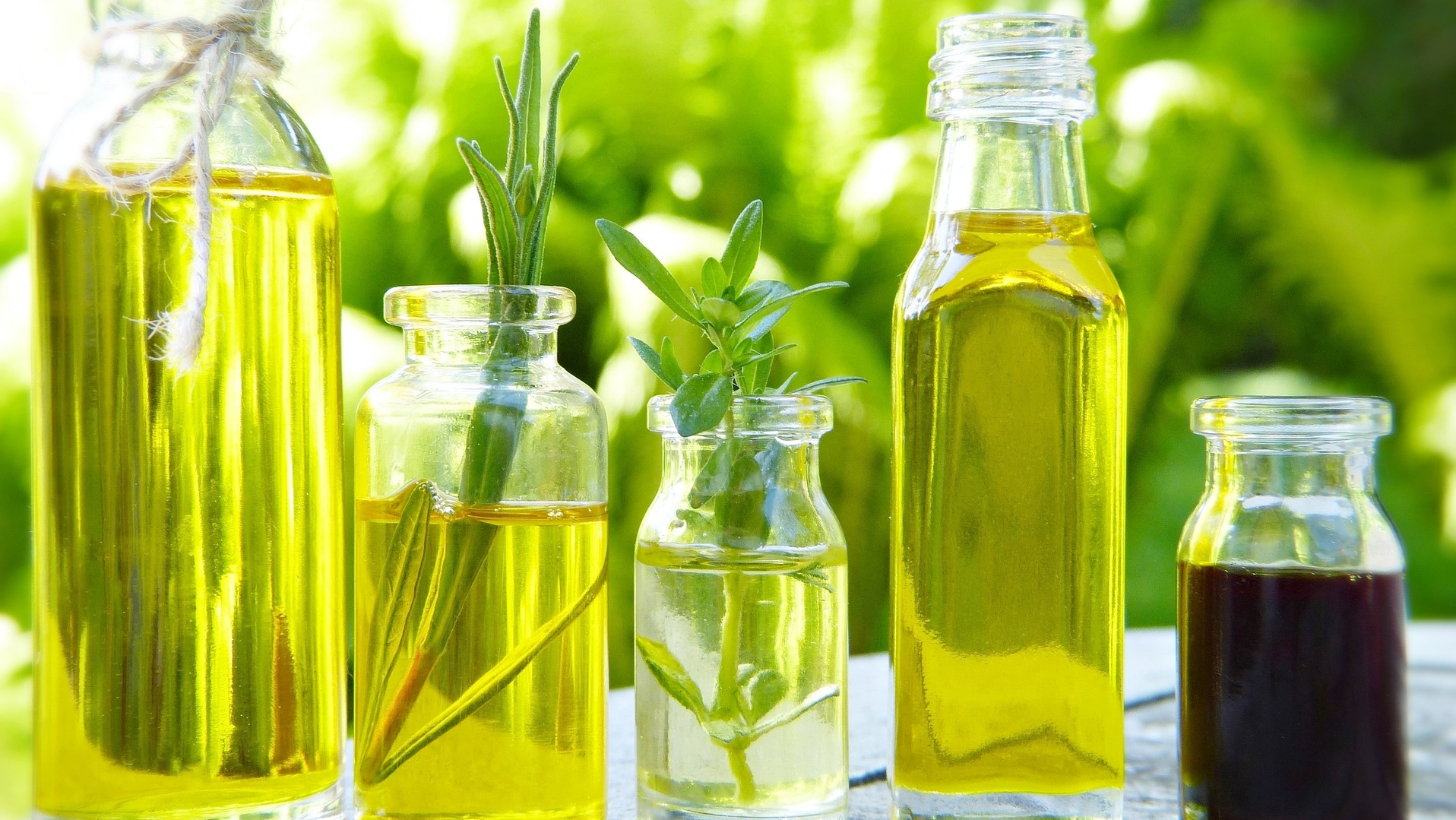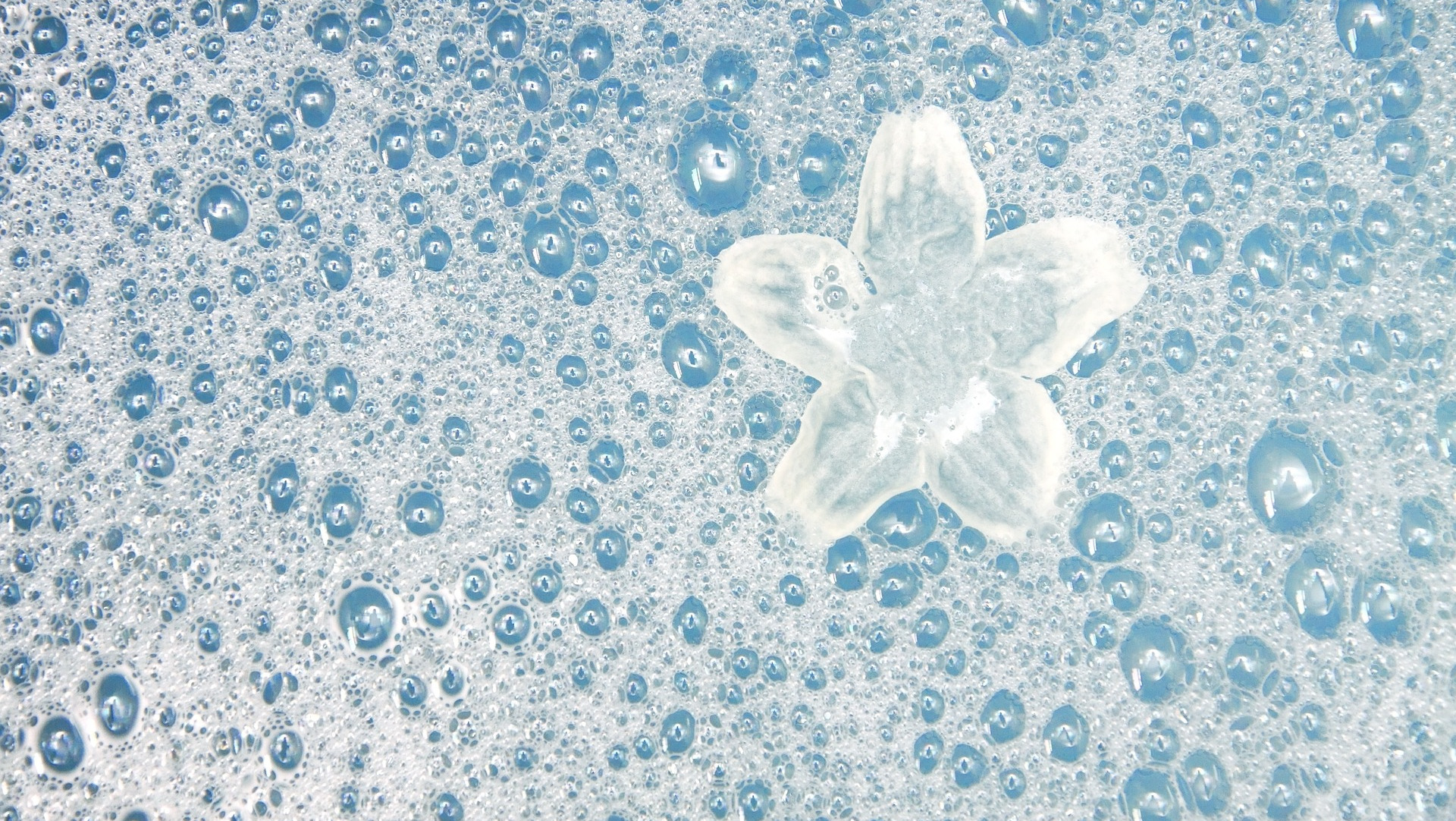Types of Aromatherapy Carrier Oils: Enhancing Your Aromatherapy Experience
Aromatherapy carrier oils are oils used to dilute essential oils, CO2s, and absolutes before applying them to the skin.
Incorporating carrier oils into your aromatherapy routine opens up possibilities for enhancing well-being and promoting overall skin health. Carrier oils are plant-based and are made by compressing the plant's seeds, nuts, leaves, or flowers to extract the oil. They are called carrier oils because they are combined with essential oils and "carry" the essential oil to the skin.
Every carrier oil has therapeutic properties and characteristics. They typically have a minimal scent, which allows the essential oil aroma to dominate. The carrier oils with a strong smell will often be blended with a second carrier oil before adding essential oils. Cold-pressed vegetable oils are preferred because heat can destroy or alter the therapeutic qualities of the oils.
Proper storage is essential for carrier oils. Some may require refrigeration, and shelf life varies. Always refer to the label for proper storage conditions.
Sweet Almond Oil: Versatility in a Bottle
Sweet almond oil, a popular general-purpose carrier, boasts a light, sweet, nutty aroma. Quickly absorbed by the skin, it soothes and moisturizes, making it ideal for massage oils. Almond oil is a staple in aromatherapy, with six to twelve months of shelf life.
Apricot Kernel Oil: A Clear Contender
It is virtually clear with a slight yellow tint, so apricot kernel oil finds its place in scrubs, skincare products, and massage blends. With a light, nutty aroma, and a twelve-month shelf life, it combines seamlessly with other oils for various aromatherapy applications.
Avocado Oil: Nourishment for Skin and Hair
Rich in vitamin A and essential minerals, avocado oil nourishes skin and hair. With a gentle, sweet, nutty aroma and an olive green hue, this thicker oil finds use in hair and scalp aromatherapy blends, often diluted with another carrier. Its shelf life extends to twelve months.
Borage Seed Oil: A Skincare Marvel
Despite its expense and short shelf life, borage seed oil's light, sweet aroma makes it a skincare favorite. Packed with essential fatty acids, it aids in treating conditions like eczema, often diluted with another carrier.
Camellia Seed Oil: Elegance in a Bottle
Cold-pressed from tea seeds, Camellia seed oil offers a pale yellow, herbal-scented option. Nourishing and quickly absorbed, it enhances the skin's vitality with a 2-year shelf life.
Cranberry Seed Oil: Fruity Elegance with Omega Benefits
With a fruity aroma and a golden yellow hue, cranberry seed oil provides omega 3, 6, and 9 fatty acids and Vitamins E and A. Its versatility makes it a go-to for addressing aging signs and various skin conditions.
Evening Primrose Oil: Elegance with EFA Power
Like borage seed oil in cost and use, evening primrose oil offers a light, sweet aroma. Rich in Omega-6 EFA gamma-linolenic acid, it contributes to skincare and manages skin conditions like eczema.
Grapeseed Oil: Astringent Elegance
Odorless and light green, grapeseed oil is a favorite in skincare and aromatherapy. Its astringent properties and satin-like finish make it popular among massage therapists. Proper storage ensures a shelf life of up to a year.
Carrier Oil Warnings - Considerations for Safe Aromatherapy
While carrier oils play a crucial role in aromatherapy, it's essential to be aware of potential warnings and considerations to ensure a safe and enjoyable experience. Here are some important points to keep in mind:
- Allergies and Sensitivities: Before using any carrier oil, perform a patch test on a small skin area to check for allergies or sensitivities. Individuals with nut allergies should be cautious with carrier oils sourced from nuts like almond, hazelnut, or even apricot kernel oil.
- Shelf Life Awareness: Respect the specified shelf life of each carrier oil. Some oils, like borage seed and evening primrose, have a shorter shelf life and can go rancid quickly. Discard oils that show signs of spoilage, such as an off smell or color changes.
- Dilution Ratios: Adhere to recommended dilution ratios when blending carrier and essential oils. Failure to do so may cause skin irritation or adverse reactions.
- Phototoxic Oils: Certain carrier oils, like citrus oils (e.g., expressed lemon or bergamot), can cause photosensitivity. Avoid exposure to direct sunlight after applying these oils to the skin.
- Pregnancy and Medical Conditions: Pregnant individuals and those with specific medical conditions should consult a healthcare professional before using certain carrier oils. Some oils may not be suitable during pregnancy or could interact with medications.
- Heat Sensitivity: Many carrier oils are sensitive to heat. Store them in cool, dark places to prevent deterioration of their therapeutic properties. Avoid exposing oils to high temperatures or direct sunlight.
- Refrigeration for Stability: Carrier oils with shorter shelf life, like grapeseed oil, may benefit from refrigeration after opening. This can help prolong their stability and prevent spoilage.
- Quality Matters: Ensure the carrier oils you purchase are high quality and, if possible, organic. Low-quality oils may contain impurities or additives that can be harmful.
- Potential Interactions: Be aware of potential interactions between carrier oils and medications. If you are on medication, consult a healthcare professional to rule out any contraindications.
- Children and Pets: Exercise caution when using aromatherapy around children and pets. Some oils may not be suitable for their sensitive systems. Always research and follow guidelines for a child- or pet-safe environment.
By being mindful of these warnings, you can maximize the benefits of aromatherapy while ensuring a safe and enjoyable experience. Always prioritize your health and well-being when incorporating carrier oils into your daily routine.







